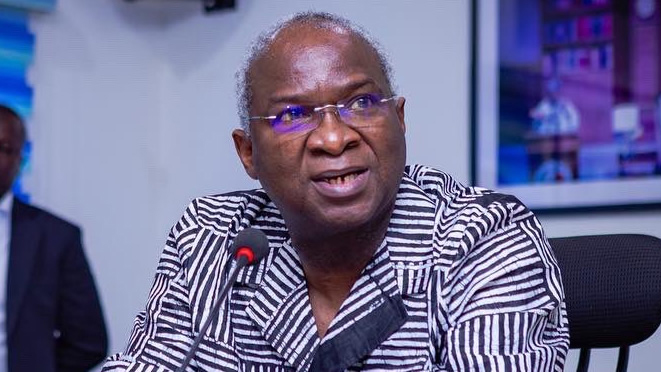
Kogi state may well be called a microcosm of sorts of the nation, Nigeria.
Just like Nigeria, it has three dominant ethnic groups struggling for dominance.
Just as the country is grappling with monumental corruption, Kogi’s public service ranks high in corruption index when compared to its contemporaries.
Not that Kogi has much in the name of industries and service firms to boost its revenue.
The Ajaokuta Steel Company Limited that would have fit in as source of such wealth has been lying fallow so the only cash cow has been the civil service where the actors have been fleecing the state of its limited resources.
The conduit pipe has been through an obnoxious planting of ghost workers, considered by some as the largest among the 36 states and Federal Capital Territory which has become a veritable tool for such civil servants to inordinately increase their wealth depending on their resilience and dexterity in the ghost-worker planting business.
The result of their thievery is obvious in the beautiful houses owned by civil servants in parts of the state, especially, Lokoja, the state capital amidst high level of poverty that has been ravaging their fellow citizens.
There have been revelations of top and medium-level civil servants appropriating salaries of over 20, 30, or even 40 ghost workers they planted on the pay roll.
Saddled with an over-bloated wage bill and the economic recession that has shrunk the revenue base which mainly has been the Federal allocation, Governor Yaya Bello on assumption of office, unveiled his plan to carry out a holistic workers’ verification and screening exercise.
Even though successive administrations identified the ghost workers syndrome as the bane of the state’s development , their efforts did not yield much positive result.
The Alhaji Ibrahim Idris administration, from 2003- 2012 employed Sally Tibot as consulting firm to unravel the mystery over bloated wage bill while Captain Idris Wada (2012-2016) also enlisted the services of Mrs Deborah Ogunmola staff audit, yet the problem remained, all efforts, a wild goose chase.
However for the incumbent it would not be business as usual as he has zeroed in on the youths within his own age bracket of 40 as the major drivers of his new direction agenda paving way for withdrawal of the elderly he believes are behind the socio economic problems of the state.
Bello could not comprehend how the civil service made up of about 70,000 people-less than two percent of the 3.5 million citizens in the state demand more than 100% of the state’s share of Federal Allocations each month.
According him: “This was both disproportionate and not sustainable, and the choice before us was clear – reform the Service or let it continue to deform our socioeconomic indices and distort our growth projections.”
He said salaries and pensions of genuine workers cannot constitute a problem to his administration
Hence in keeping with his promise to reform and reposition the state civil service for top quality service delivery, he inaugurated Staff Verification and Screening Committee on February 22, 2016.
Though the exercise was bogged down in controversies, Bello vowed to use the report to help him to get rid of the ghosts.
Hence the recent public presentation of the reports of the verification and screening exercise threw up more issues , especially with the damning report on the role of labour , the leadership of the committee and conduct of the technical partner appointed to give support to committee which failed to impact positively on the committee.
The Auditor General for Local Government, Usman Ahmed Ododo played an audio recorded clandestinely in the screening room which alleged to have exposed the under hand dealings that involved the technical partner.
Ododo explained that the partner was discovered to be arguing with a representative of labour over how to slot in ghost workers’ names even after a good job had been done.
The State Auditor General Alhaji Yakubu Yusuf Okala who presented the report indicated that the field work was extensive and thorough; adding that the integrity of data tested could be adjudged to be very high.
“However, the second aspect of the Staff Screening and Verification Committee work, which was desk review was marred with substantial fraud and high level of irregularities.
“It appears that these irregularities were deliberate effort by some enemies of the state who may have infiltrated the screening committee to manipulate and embarrass the state government for their selfish interest.”
Some of the irregularities according to him included their inability to capture Biodata of 14,947 employee.
“These civil servants represent those with or without issues, which were not captured in their report. These categories of staff were unjustly excluded from the screened staff list.
“By implication, a total of 14,947 civil servants spread across the state would have been unjustly declared as ghost workers without their data captured in the submitted Committee’s Report under the leadership of Dr. Jerry Agbaji.”
He said during review 10, 101 out of the 14,947 were given a clean bill of health, while 1,016 Employee Biodata Forms were muddled up in Ministries, Departments and Agencies(MDAs) different from where the civil servant is currently working.
‘It took over 20 days by about 20 ad-hoc staff to sort and rearrange these forms by MDAs and the respective local councils.’
According to the auditor general, civil servants across the MDAs and councils numbering 1,060 were found to be wrongly classified or wrongly cleared in the report submitted by the Staff Verification & Screening Committee.
The implication he said would be like returning to square one as the ghost workers and intended beneficiaries were returned as cleared workers while those who were cleared were removed.
According to him, Screening Guidelines and Procedures agreed to by government and organized labour were violated.
He cited irregular signatures and deliberate refusal to sign Employee Biodata Forms on the part of the committee adding that where the forms were signed, the signatures were deliberately made to be irregular so as to make it difficult to trace the member of the committee that signed.
Other irregularities thrown up include employment before the creation of Kogi state in State Universal Basic Education Board (SUBEB).
People were said to have been employed by SUBEB in 1986 as Teachers in Ofu Local Council whereas the state was created in August,1991.
“The letter head used for their employment between 1983 to 1991 was that of Kogi State Government, Lokoja. How this was possible is still a mystery.”
The screening exercise he indicated, unraveled one underage Nefisatu Abubakar among others.
“Nefisatu was said to have been employed in July 9, 2008 by Ankpa Local Education Authority whereas, according to records available to us, she was born on May 7, 1996 .
She was employed at the age of 12 years, when ordinarily she was supposed to be in Primary School. She has no Primary School Certificate, but finished Senior School Certificate in June 2014.”
He indicated that the committee reports also uncovered diaspora employees who claimed to be in the employment of Kogi State Government, taking salaries but are residing outside Kogi state and even outside the country.
He said some officers within the state were found to be drawing multiple salaries from either state, local or Federal Government as well as private companies.
“This discovery was revealed through interfacing with Nigeria Inter-Bank Settlement System (NIBSS) where the Bank Verification Number (BVN) of the individuals concerned revealed that about 19,195 employees of the state and local councils had BVN related irregularities .They were earning salaries from more than one source.”
Another fundamental issue raised by the report touches the soul of basic education whereby it was discovered that the entire state LGEA offices were bloated with many redundant senior officers ranging from Grade Level 12 to Grade Level17 who had left classroom for offices thereby leaving the schools without experienced teachers as at today.
Another startling revelation was of dubious persons who have been claiming the employment benefits of deceased civil servants for more than a decade, such as Joseph Inikpi, an employee of Dekina Local Council who was confirmed to be late but whose identity was taken over by a woman who started enjoying her.
The report disclosed that the state had lost over N213 billion to ghost workers in the state in 13 years.
The breakdown of the report indicated that the government was losing N16 billion yearly and N1.3billion monthly to ghost workers and unintended beneficiaries.
The chairman of the back up committee for the analysis of the screening, explained that no fewer than 88, 973 people were on the payroll at the time the screening exercise commenced with a monthly wage bill of N5.84 billion.
He however said upon the conclusion of the screening exercise 63, 870 workers were cleared, reducing the wage bill to N4. 443 billion.






